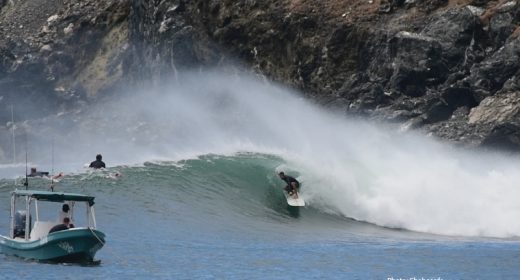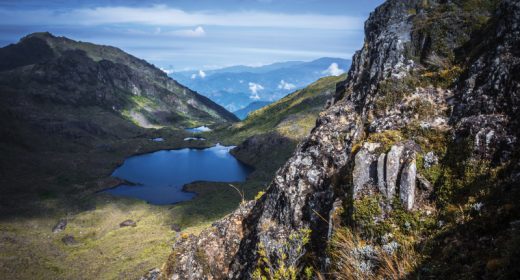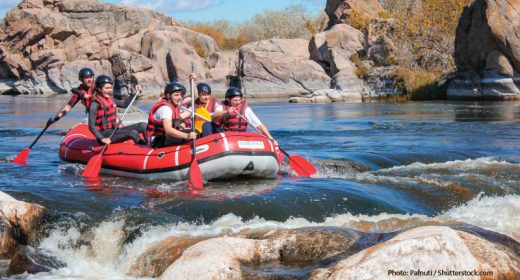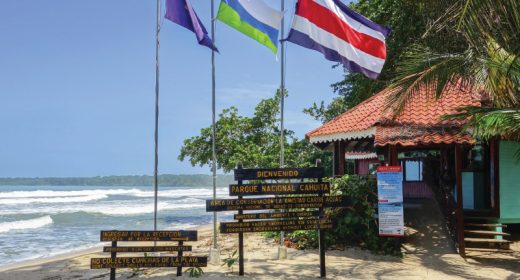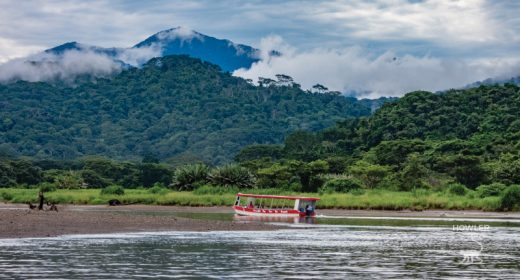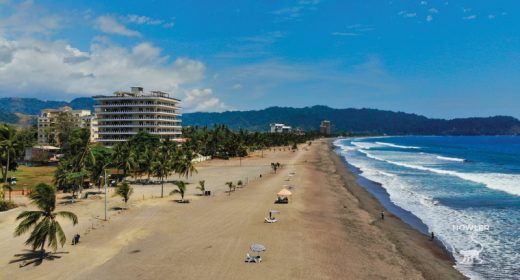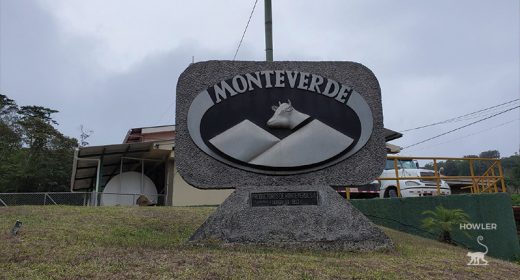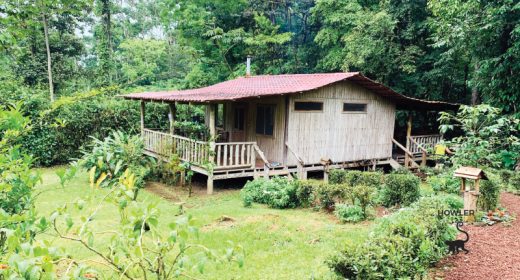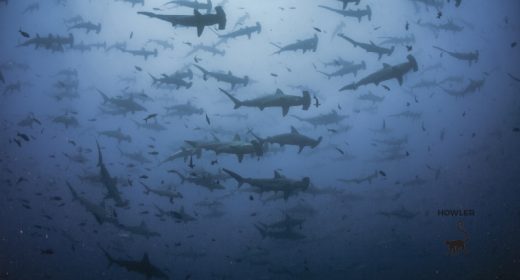
Featured Adventure – Fishing, Fun and Flamingo
- JUL 04, 2017Warning: count(): Parameter must be an array or an object that implements Countable in /home/howlermag/public_html/old/wp-content/themes/new-paper/includes/general.php on line 193
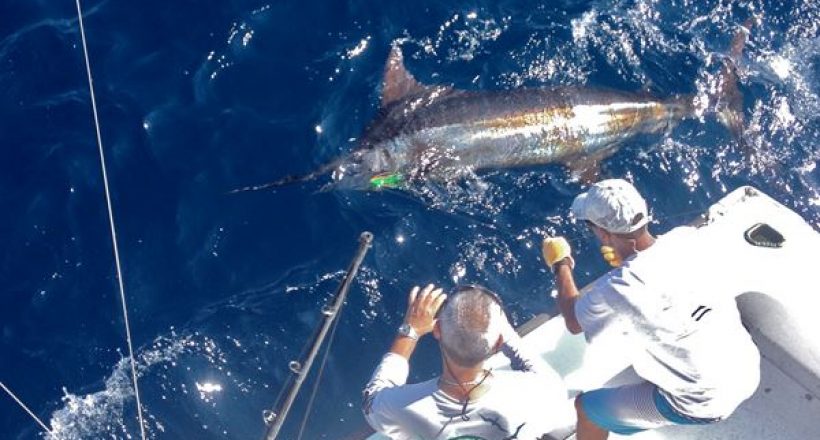
Your Lead Paragrpah goes here
[vc_row full_width=”full_width”][vc_column][vc_column_text]Flamingo, Costa Rica is one of the world’s legendary sport fishing locales, and one that has been attracting generations of passionate anglers from all over the world for decades. And while the focus may have shifted to other destinations in recent years, the fishing out of Flamingo is still phenomenal, and not just for billfish. The northern Pacific coast of Costa Rica is world-renowned for its excellent fishing for mahi-mahi, wahoo and tuna, in addition to roosterfish and several species of grouper and snapper. If it swims and it’s fun to catch, you can probably land one in Flamingo.
Capt. Richard Chellemi has been chartering the Gamefisher II charter boat in Costa Rica since June of 1987, basing out of Marina Flamingo for 17 years until the marina closed and then operating from a mooring in Potrero Bay for the past 11 years.
[/vc_column_text][/vc_column][/vc_row][vc_row full_width=”full_width”][vc_column width=”2/3″][vc_column_text]“The average run to the fishing grounds is about one hour. The edge where the continental shelf meets the continental slope is approximately 20 nautical miles in most all directions,” Chellemi says. The edge can produce at times some world-class marlin fishing for blues, blacks and stripes, as well as very consistent fishing for sailfish. The dorado (mahi-mahi) fishing as well as the yellowfin tuna fishing can also be excellent.”
He also points out that for many years, the world record mahi-mahi was caught in the Gulf of Papagayo.
Flamingo is geographically positioned on the edge of the inter-tropical conversion zone, which is the fluctuating line between the tradewind belt to the north and the doldrums to the south. The seasons are loosely defined for the most part with a rainy season from May to November (afternoon rains) and a dry season from December through April. The water temperatures range between 82 and 87 degrees year-round.
Chellemi reports that May and June can host good sailfish fishing and July and August have seen some excellent marlin bites, although there’s generally very good fishing out of Flamingo nearly every month of the year.
[/vc_column_text][/vc_column][vc_column width=”1/3″][vc_gallery type=”image_grid” images=”3174,3175″ img_size=”full”][/vc_column][/vc_row][vc_row full_width=”full_width”][vc_column width=”1/3″][vc_gallery type=”image_grid” images=”3173,3171″ img_size=”full”][/vc_column][vc_column width=”2/3″][vc_column_text]It’s because of this consistent and varied fishing that the Presidential Challenge Charitable Foundation will once again host the Presidential Flamingo Fishing Rodeo. The second annual event will be held July 28 to 30, 2017 in Flamingo Beach.
“We’re going back to the basics with this tournament,” says PCCA founder Joan Vernon. “It’s time we put the fun and family back into sport fishing, as well as a more focused appeal to the charter boat angler.”
In fact, Vernon says, the tournament’s mission statement is to publicize Flamingo as the fishing destination that it used to be by helping charter captains book clients to fish this event. It will also continue to increase awareness of Flamingo and the northern Pacific region of Costa Rica as a world-class fishing destination.
“It’s been very exciting to work with the charter captains as well as the business owners in Flamingo, many of whom have been friends of mine for many years,” Vernon says.
She says the event will offer a minimal entry fee, just $100 per team, and will have minimal rules—just go fishing and have a great time.
“We will have special prizes and trophies for the top ladies and top junior anglers in the tournament as well. The goal is to get more families out fishing with their kids.”
[/vc_column_text][/vc_column][/vc_row][vc_row full_width=”full_width”][vc_column][vc_column_text]The tournament will also benefit not only marine conservation in Costa Rica but also a local charity called Abriendo Mentes. This non-profit organization helps provide assistance to people in the Guanacaste region of Costa Rica to have access to enhanced education and employment opportunities.
So if you’re looking for a new adventure, check out the Flamingo Fishing Rodeo. It’s a great way to revisit an old favorite, so grab your friends and get ready for some fun down in Flamingo, Costa Rica. Visit www.preschallenge.com for more information.
[/vc_column_text][/vc_column][/vc_row][vc_row full_width=”full_width”][vc_column width=”2/3″][vc_column_text]
About the Presidential Challenge Charitable Foundation
The Presidential Challenge series is dedicated to the conservation and protection of billfish and inshore gamefish. All events have two goals: promote sportfishing-related tourism and to raise money for charitable organizations that specialize in protecting gamefish. These groups include The Billfish Foundation, Adopt-A-Billfish and the International Game Fish Association.
The Presidential Challenge Charitable Foundation, Inc. is permanently dedicated and organized exclusively for educational, scientific and charitable purposes, including but not limited to the following:
- To investigate, research and expand upon the present state of knowledge of the marine environment, in particular the billfish, which do or may populate same, as it affects the fishery in the United States and elsewhere, and to disseminate the information thus obtained;
- To develop and implement programs for the conservation and improvement of the fishery;
- To act as a coordinating entity with other groups, both governmental and non-governmental, in the promotion and achievement of the above purposes;
- To make distributions to organizations that qualify as exempt organizations under Section 501(c)(3) of the Internal Revenue Code as presently constituted or the corresponding provisions of any future United States internal Revenue Code.
[/vc_column_text][/vc_column][vc_column width=”1/3″][vc_gallery type=”image_grid” images=”3177″ img_size=”full”][/vc_column][/vc_row][vc_row full_width=”full_width”][vc_column][vc_column_text]
Sport Fishing Serious Business
Sport fishing in Costa Rica is more than just fun and games. There are rules to be taken seriously for reasons that are not as mutually exclusive as they might seem.
Most notably, recreational catch and release for marlin and sailfish is mandatory. In 2008, Costa Rica became the first country to make possession of a billfish by recreational anglers illegal. Regulations also prohibit the removal of a sailfish or marlin from the water for the purpose of taking a photo. Those in violation are subject to a fine of ₡2 million.
Anglers must also use circle hooks with natural bait and not the more lethal J-shaped hooks, which may only be used in artificial lures. The circle hook’s curved shape keeps it from catching in the fish’s gut cavity or throat and causing damage. Individuals found to be using anything but a circle hook can be fined or have their fishing license revoked.
Healthy oceans make for prosperous economies, and The Billfish Foundation has tangible evidence to guide policy-making decisions in that regard.
The Foundation’s groundbreaking studies of catch-and-release billfishing quantify the gains in terms of employment and tax revenue data, alongside the advancement of conservation goals. What some find surprising, according to the Foundation, is that Costa Rica’s sustainable recreational harvest contributes more to the economy than its subsidized commercial fishing industry.
One 2008 study showed North American tourists fishing in Costa Rica generated $599 million – or about two percent of the country’s gross domestic product. The same study found sport fishing generated almost $78 million in tax revenues for Costa Rica and 63,000 jobs.
To learn more about The Billfish Foundation and its research on the socioeconomic benefits of recreational fishing, visit www.billfish.org
[/vc_column_text][/vc_column][/vc_row]
